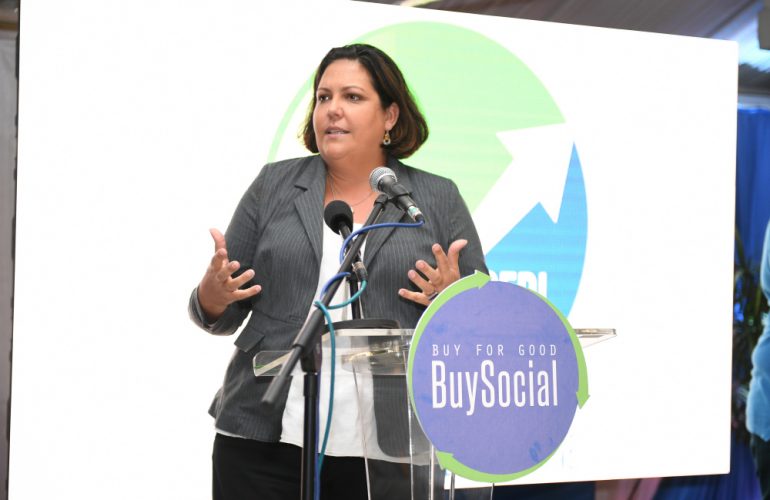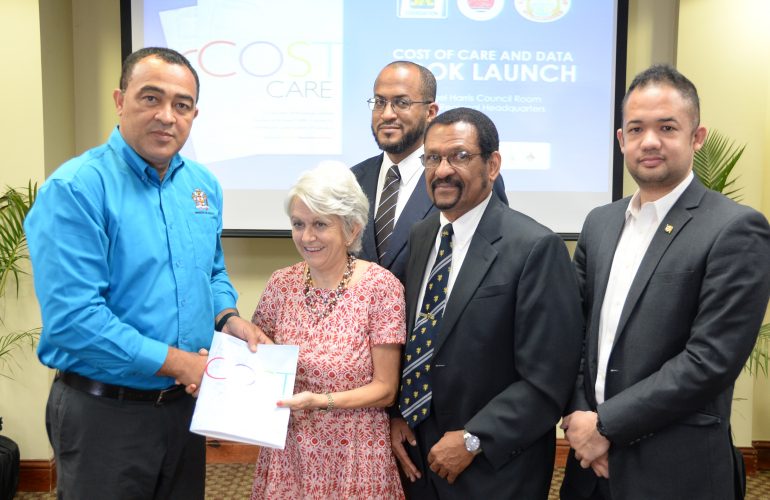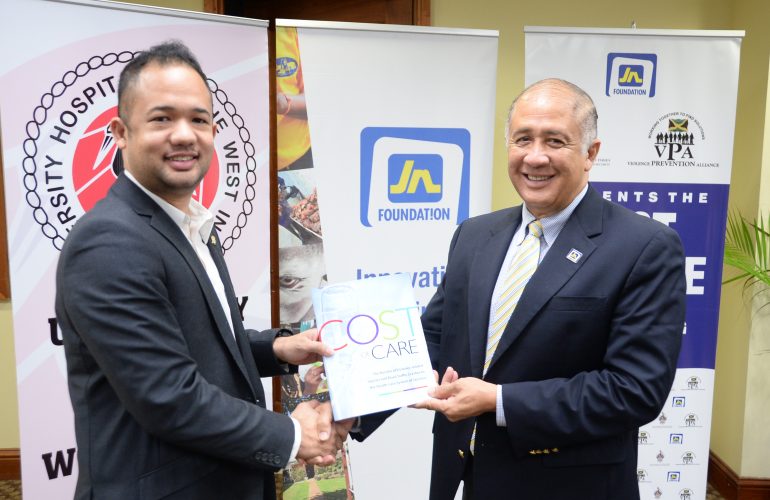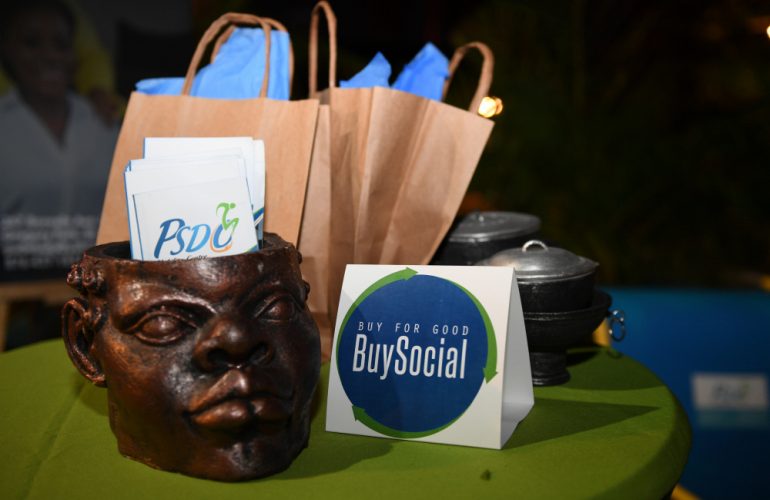SEBI launches Buy Social trademark, advertising campaign
Thirty-five social enterprises, nurtured by the Social Enterprise Boost Initiative (SEBI) both as members of the SEBI incubator and the SEBI open network, have received their official Buy Social trademark, to assist prospective consumers in identifying their products, services and social missions.
The objective is to increase consumer demand and enhance the management of their enterprises. The Buy Social trademark and advertising campaign were launched at the Terra Nova All Suite Hotel in Kingston recently.
Saffrey Brown, General Manager, JN Foundation, said that the unique mark will signal to consumers that the business bearing it is a social enterprise.“When you buy from a social enterprise, you are choosing to spend your money with a business that is giving something back,” Brown explained. “They reinvest their profits to address the most pressing social issues in their community, such as unemployment.”
The project manager said that the four-month campaign which commenced earlier this month, will include advertising on television, radio and newspapers; as well as, on buses and digital billboards.
Scheed Cole, Manager of 360 Recycle Manufacturing, one of the social enterprises which will benefit from the initiative, said, “we are working with grassroots people, so that they can earn sustainable income. We need all the help we can get and, so I am in full support of Buy Social campaign.”
Located on Rousseau Road in the western zone of Kingston, 360 Recycle Manufacturing uses plastic bottles, Styrofoam and paper to create construction materials such as blocks, flower pots and sculptures.
“Once the Buy Social promotion starts, we will get in line with it, and as more people come to know the brand, we expect to create more business for us,” Cole said.
Charles Arumiselvam of Alpha Wear Ja, a unique fashion venture created by the Alpha Boys’ School in Kingston, pointed out that he expects the Buy Social campaign to help the venture.
Armiselvam said, “Alpha Institute is known as having a social mission; but, what the institute is not well known for is the business side of its operation; there, the Buy Social campaign will put us on the map of Jamaica.
“This is a great campaign. It is an important moment for Alpha Institute to be identified as a place where people can come and buy interesting products, and we are grateful to JN Foundation and SEBI to help promote us into the marketplace,” Arumiselvam said.
To be used by the social enterprise practitioners initially in Jamaica, the trademark will be subsequently promoted across the wider Caribbean region. The Buy Social trademark and social advertising campaign comprise the second phase of the SEBI project.








